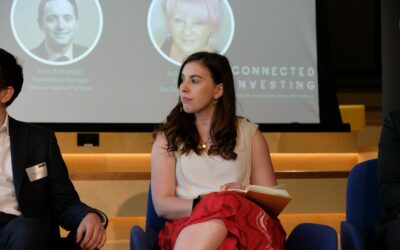The impact of coronavirus has been vast on both a regional, national and international scale. The marketing industry, like so many others, has been hit by stripped back budgets and worries about people’s physical and mental health.
Emma Thompson, Head of Agency at Golley Slater, is looking positively to the future. She says that things might be difficult right now, but there will be positive repercussions in terms of team spirit and resilience in the long run.
COVID-19 has already caused a huge, unprecedented impact on the UK, and the world. It’s created universal worries around health, livelihoods, and indeed our mental wellness, as we are all forced into isolation.
For the marketing industry, this impact is coupled with the need to be – and not just appear – ‘open for business’ whilst also maintaining seamless communication with clients via remote working. This required speedy adoption to new processes and communication methods, needs that have all come at once, alongside it being at the end of the financial year, additional implications are inevitable. Businesses have been catapulted into an unknown territory.
As with many medium-sized marketing agencies, we have found ourselves in a state of commercial paralysis and uncertainty. The industry has seen many brands pausing or slowing their marketing spends, throwing agencies into an unpredictable world of flux.
As our client spend is slowed, so too are a number of our colleagues’ daily duties. The lifeline we will receive from the government’s job retention scheme has been a safety harness to operating a leaner, yet still efficient team in the short term, allowing us to deliver continuity to those clients who are still operating as normal.
As businesses scale back operations in response to clients’ dipping demands, furloughed staff move into a sedentary life, and the staff remaining increase their hours to accommodate. A cultural and mindset disconnect between the two groups of staff will need to be well managed and when the time comes, carefully integrated back into office life post-crisis.
We are three weeks into social isolation and working from home and I am conscious of the longer-term effect on mental health for all of my colleagues during these unsettling times.
Running a business right now needs to be done with a level of instinct and empathy, coupled with analytics and insight. Pride, fear and tiredness are to be put to one side as we focus on one common goal – getting through this together.
Many of my colleagues and friends are adopting different work and home life routines to maximise their productivity and also balance other commitments, like looking after children. Some start the working day at 5am and finish at 3pm, others start at 11am and finish at 7pm. Companies are seeing a new kind of normality being played out to adapt to working from home, including flexibility without the constraints associated with a 9-to-5.
We’re encouraging these individual patterns and see them as a coping mechanism to get employees through this alien way of working. But we have to remain aware that whilst adjusting to this ‘new normal’, we remain ready, post-isolation, to revert back to the restrictions of the typical office working hours.
Accumulated wisdom and research from the Foot and Mouth outbreak of 2001 shows us that sustained imposed social isolation and financial uncertainty can have an effect on individuals’ perceptions of their quality of life for years – meaning measures taken to remove social distancing should be staged to allow for individuals to readjust back to ‘normality’.
But as time goes by, there will be positive repercussions on individual and team spirit across businesses. The early signs already exist. Increased team spirit will enhance us, make us stronger and unify us in our common goal. Whether via conference or video calls, like so many other disparate companies, we are supporting and getting to know each other properly. This has led to great transparencies across the business and even greater transparencies regarding the feelings of individuals.
Over the past couple of weeks, amongst the worry, we’ve already seen many reasons to be joyful. So many firsts have been achieved that we are proud of and can celebrate together. For example the national NHS applauses, brands offering discounts for key workers, and supermarkets catering to the vulnerable by altering opening hours. It’s a time where businesses and society as a whole can connect and become stronger.
These signs of resilience and the adoption of new and good habits formed during social isolation will have a residual effect on behaviors and attitudes moving forward. GlobalWebIndex is running perception surveys that suggest adopters of physical exercise are committed to adding this into their daily routines, alongside recognising the value of family units and spending quality time with loved ones.
So I’d like to believe that fears, uncertainties and uncomfortable adaption back to normality will be short-lived post-isolation; and that we collectively continue with the good individual habits, acceptance of moderated working patterns and group community as we adapt back to our previous lifestyles.
In the words of one of my colleagues sent to the whole company on one of the first days of isolation:
- This doesn’t define us, it will be the making of us.
- This doesn’t mould us, it forms a new version of us.
- This doesn’t break us, it will repair us.
- This doesn’t divide us, it unites us.
- This doesn’t control us, it only temporarily limits us.











